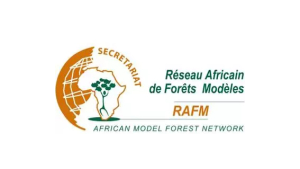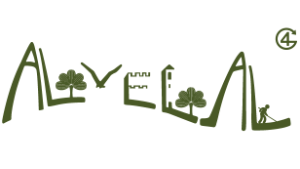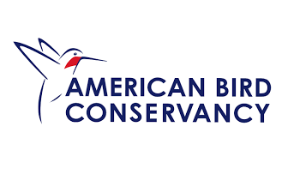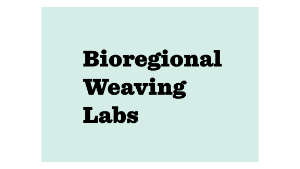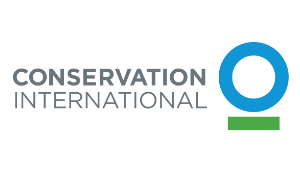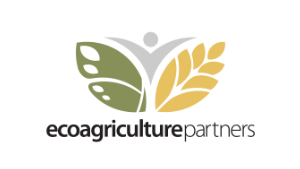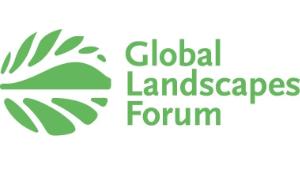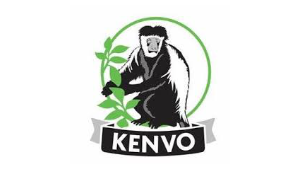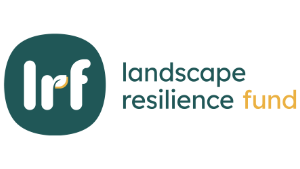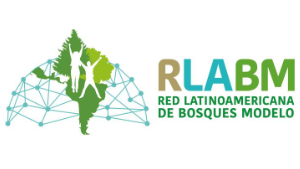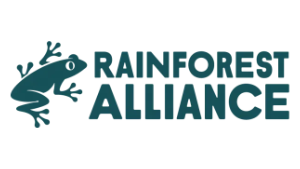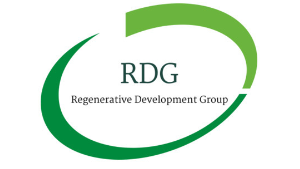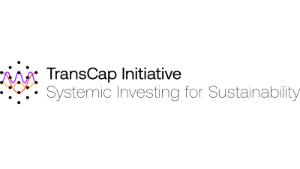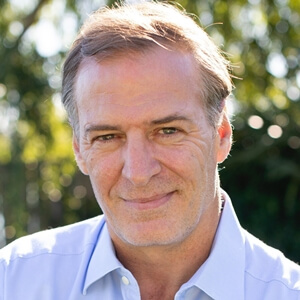Funding a Better Future: An Urgent Plea and Plan to Remake the Financial System to Support Holistic Landscape Development Led by Local People
Dear Ministers, Heads of State, and Leaders of Finance,
We write to you with an urgent plea for bold action through financial innovation to confront climate change, biodiversity loss, ecosystem destruction, poverty, and food and water insecurity. These threats are already impacting lives, livelihoods, and nature worldwide.
The current fragmented approach to these challenges is falling short. Civil society, governments, and the private sector are making billions of dollars available to address individual crises. But this not only falls short of the needs; narrowly designed, siloed, and uncoordinated projects that work at cross purposes diminishes its impact. Funding struggles to reach the land and water managers on the ground who could best employ it.
The planet needs your leadership in attacking these issues not as isolated problems but as interconnected, coexisting symptoms damaging the health and well-being of societies and the environment. Globally, we see forest conservation efforts impaired by conflicting agricultural expansion, degraded watersheds marring agricultural development, and biodiversity plans compromised by ill-considered infrastructure projects.
The most powerful tool we have to reduce harmful trade-offs between competing human activities involves boldly re-engineering the current financial system. The system we all need will send financial flows to the communities implementing locally-led nature-positive integrated solutions at a landscape scale. As government and finance leaders, you can deploy a potent solution: integrated landscape finance (ILF). We urge you to embrace this holistic, place-based finance approach that works at the scale of whole landscapes and seascapes, territories, and city-regions to confront society’s most critical challenges together.
Addressing climate change demands concurrent bottom-up and top-down responses that bridge agriculture, forestry, finance, renewable energy, and more. Likewise, biodiversity loss and desertification require action across sectors from fishing to urban planning. ILF provides the framework for this collective multi-sectoral effort: a robust mechanism that aligns investments with the interconnected reality of our world and channels funding to the places and people where it can have the greatest benefit.
This innovative approach emphasizes local inclusive processes and leadership to foster thriving economies, human well-being, healthy ecosystems, and inspiration for collective action.
Landscape partnerships1 – coalitions of landscape actors including farmers, businesses, governments, and NGOs – work to align multiple commercial and non-commercial projects that foster transformative change. For example, strategies to promote regenerative and climate-smart food systems at the landscape scale can draw on synergies among investments in farmer technical assistance, incentives for local government food procurement, biodiversity-friendly businesses, and land restoration to reduce climate risks to production. Investing for more sustainable and resilient territories can de-risk supply chains, strengthen local workforces, and ensure a more sustainable natural resource base.
ILF taps many kinds of financial flows in a landscape to support smart, coordinated investments by private, public, and philanthropic financiers. A new finance industry is evolving to generate a new asset class. This includes flexible long-term grant funding to develop and sustain the landscape partnerships that facilitate coordinated investment planning.
Now, we call on all Ministers, Heads of State, and Leaders of Finance to direct the funding you manage for sustainable development, climate, and environment to programs focused on landscapes and territories. Priority actions are to:
- Embrace the agenda of investing in locally-led development, conservation, restoration, and adaptation initiatives that benefit citizens, nature, and commerce, and guide your institution toward taking up this approach at the appropriate scale.
- Fund local multi-stakeholder landscape partnerships and the processes they use to organize and coordinate landscape-wide investment portfolios and to give voice and control to local communities and indigenous peoples. Provide unrestricted long-term grant funding directly to them.
- Incorporate integrated landscape investment and finance into regional and national plans for development, climate, and the environment. Enable the integration of built infrastructure with green infrastructure that protects, restores, or mimics natural ecosystems. Redirect harmful incentives and subsidies to landscape investments.
- Move commercial funding away from siloed, short-term projects to invest in long-term landscape investment portfolios that local stakeholders co-design and endorse. Contribute your part to a whole-landscape regeneration strategy.
- Structure large financial flows and mechanisms in a way that integrates investments for economic development, food system reform, ecosystem restoration, and climate to provide coherent funding for landscapes. Local and indigenous communities are best positioned to manage their landscapes and territories sustainably.
- Collaborate and coordinate with other funders and stakeholders across the finance continuum and sectors to boost project profits, reduce investment risks, and attain Sustainable Development Goals at the landscape level.
Humanity stands at a pivotal moment in history. We can still avoid catastrophe. Ministers, Heads of State, and Financiers, we implore you to harness the financial resources at your disposal and direct them toward solutions on the ground that embrace the interconnections between human activities and nature.
To learn more about how you can help transform the finance system, to see examples of powerful impact from integrated landscape finance, and to connect with local landscape partnerships and their allies, visit www.landscapes.global.
1 Numerous different terms are used for place-based approaches that are broadly similar to integrated landscape management, such as holistic landscape restoration and territorial development. The recommendations in this letter are relevant to all.
Sincerely,
Sign the open letter
Funding a Better Future
| 141 | Ms. Wegesa Jane Fraser | Kenya | Boma Ikolojia Regeneration Kanyerus | ||
| 140 | Mr. Oliver Karius | Switzerland | LGT Venture Philanthropy | ||
| 139 | Ms. Balasundharan Arumugam | India | Society for Community Organization and Rural Education (SCORE) | ||
| 138 | Ms. Beris Gwynne | Switzerland | Geneva Rethinking Finance Collaborative | ||
| 137 | Mr. Geoffrey Asea | Uganda | MAN Engineering Uganda limited | ||
| 136 | Ms. Geoffrey Asea | Uganda | MAN Engineering Uganda limited | ||
| 135 | Mr. Kondwani Kanyika | Zambia | Kreativbox Technology Limited | ||
| 134 | Mr. Jonathan Mulokozi | Tanzania | CSM NGO | ||
| 133 | Ms. LaShon Wilson | United States | RN Solutions | ||
| 132 | Mr. Bhushan H SETHI | United States | GALLOP Initiative | ||
| 131 | Mr. ALEX DAVID FIGUEROA ROLLINS | Dominican Republic | ASOCIACION DE DESARROLLO DEL NORDESTE | ||
| 130 | Mr. Vital Tshimpanga | Mozambique | Faith and Hope Association | ||
| 129 | Mr. Thandizo Chipaye | Malawi | Under the shade | ||
| 128 | Mr. Eric Omolo | Kenya | WGL CAPITAL GROUP AFRICA LTD | ||
| 127 | Mr. Richard Dikrey | Papua New Guinea | Bosmun Agriculture Farmers Cooperative | ||
| 126 | Ms. Boboy Lemente | Philippines | GPP | ||
| 125 | Ms. Mogues Worku | Ethiopia | Lem, the Environment & Dev Society of Ethiopia | ||
| 124 | Mrs. Ilangyi Leah Deborah | Congo | Work for the Forest " WF " | ||
| 123 | Ms. Mfariji Alvin | Congo | Helping Tree service (HTS ) | ||
| 122 | Mr. EDGARDO GONZALEZ | Puerto Rico | Centro para la Conservación del Paisaje | ||
| 121 | Ms. Vanessa Malandrin | Australia | Landcare | ||
| 120 | Ms. Daniel Norberto Dieguez | Argentina | Bosque Modelo Tucumán | ||
| 119 | Mr. Anthony Mukolu | ?? | Tony Mukolu Foundation | ||
| 118 | Mr. Milan Zrim | Slovenia | TVG INSTITUTE - ZERO MINUS TECHNOLOGIES | ||
| 117 | Ms. ERIC DE JESUS CARRASCO NUÑEZ | Spain | |||
| 116 | Mr. Tijn Tjoelker | Netherlands | Bioregional Weaving Labs Collective | ||
| 115 | Mr. Krishn Trivedi | India | Action for Social Advancement | ||
| 114 | Ms. André Semadeni | Switzerland | self | ||
| 113 | Mr. Paul Chatterton | Austria | Landscape Finance Lab | ||
| 112 | Mr. Juan Fernando Ramos | Guatemala | Regenera | ||
| 111 | Dr. Jonathan Scherch | United States | Self | ||
| 110 | Ms. M P | United States | Regenerate | ||
| 109 | Mr. Niels Haak | Netherlands | Sustainable Coffee Challenge | ||
| 108 | Ms. Kishore Kumar Illa | India | Rainforest Alliance | ||
| 107 | Mr. Abubakar Ibrahim | Nigeria | Katsina Youth Transformation Network | ||
| 106 | Mr. Yusef Abedi | Iran | Cycling For Decarbonisation | ||
| 105 | Mr. José Luís Monteiro | Portugal | OIKOS - Cooperação e Desenvolvimento | ||
| 104 | Ms. Mahantesh Patil | India | Ayodhya Crops Academy | ||
| 103 | Mr. Md Zakir Hossain | Bangladesh | Krisoker Sor (Farmers' Voice) | ||
| 102 | Dr. Utkarsh Ghate | India | BAIF | ||
| 101 | Ms. Linnea Kennedy | United States | Second Harvest Food Bank | ||
| 100 | Mr. Bas Louman | Netherlands | Tropenbos International | ||
| 99 | Ms. Sarah Weinberg | Netherlands | Rainforest Alliance | ||
| 98 | Ms. Aruna Ranga har Pohl | India | India Foundation for Humanistic Development | ||
| 97 | Mr. David Hecht | United States | Self | ||
| 96 | Mr. Arturo Tovar | Netherlands | Rainforest Alliance | ||
| 95 | Ms. Reka Blakemore | United States | EcoAgriculture Partners | ||
| 94 | Dr. Morris Zororai Mtsambiwa | Zimbabwe | Retired Ecologist | ||
| 93 | Mr. Syed Harir Shah | Pakistan | Chitral Travel Bureau | ||
| 92 | Ms. Lorraine Potter | United States | the Inga Foundation USA | ||
| << < > >> | |||||
